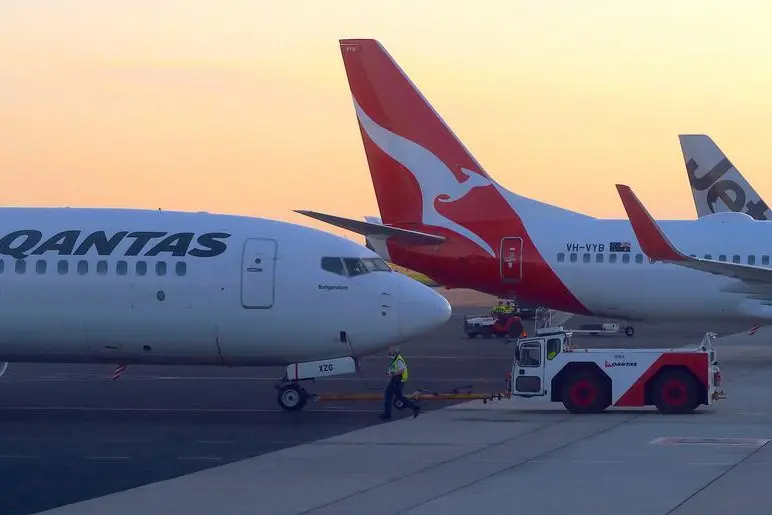PHOTO
HONG KONG - Airlines are flashing economic warning lights Down Under. Full-year earnings at both Qantas and Air New Zealand fell. Corporate and discount travelers alike are pulling back, and neither carrier is offering much future guidance. Any benefits of rock-bottom interest rates are taking time to trickle down.
Both counties have struggled to get consumers and businesses spending. Australian growth slowed to 1.8% in the first quarter, about half the long-term average and its weakest since the global financial crisis. New Zealand earlier this month cut benchmark borrowing costs by half a percentage point, and flagged the possibility of negative rates.
Not all the gloom is homegrown. Higher oil prices ate into profit, and underlying earnings before interest and taxes fell 28% at Qantas’ international arm over the past year. Near-term volumes in Hong Kong, an important stopover, are down 10% because of anti-government protests, prompting the Australian carrier to use bigger planes for destinations such as Singapore.
Domestic problems exist, too, though. Qantas signaled that further weakness Down Under could prompt it to cut capacity. While oil and mining companies are spending more in Western Australia, the corporate outlook has gone from strong to flat, as banks and other sectors hold back. A weak currency also hurt.
Air New Zealand, meanwhile, flagged weak inbound tourism and local demand, and said it would cut flights at home.
Qantas’ loyalty scheme provides a helpful buffer and the carrier was even able to offer investors a modest share buyback. But the future is fuzzy. Air New Zealand's range of outcomes for the coming year is worryingly broad. That makes it easier to be pessimistic.
CONTEXT NEWS
- Australia’s flagship airline Qantas on Aug. 22 reported an underlying profit before tax of A$1.3 billion ($881 million) for the year to the end of June, a nearly 17% decline from a year earlier largely because of higher fuel costs. The figure strips out costs linked to some new investments, bonuses and gains on asset sales. Analysts had been expecting A$1.4 billion, according to an average of eight estimates compiled by Refinitiv.
- Underlying earnings before interest and taxes for the company’s domestic operations fell 4% while the international division’s EBIT declined 28%.
- Qantas reported a dividend of 13 Australian cents a share and a buyback programme of up to 79.7 million shares, worth approximately A$400 million.
- Qantas shares were up 0.8% in morning trade in Sydney, at A$5.83.
(Editing by Jeffrey Goldfarb and Katrina Hamlin)
© Reuters News 2019





















